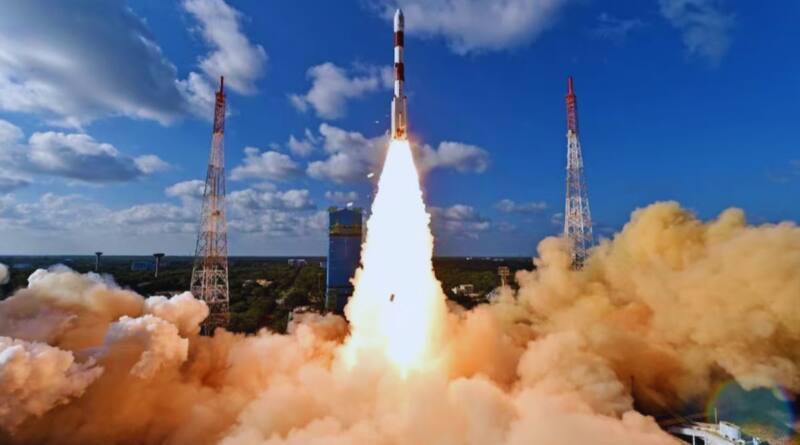New India Launches a Black Hole Research Mission into Space
On Monday, it was launched from the Sriharikota spaceport at 09:10 local time (03:40 GMT).
This is only the world’s second mission of its kind, following Nasa’s launch in 2021.
The space agency stated that it wished to assist scientists in improving their “knowledge of black holes.”
“We will have an exciting time ahead,” S. Somanath, chairperson of the Indian Space Research Organization (Isro), said after the launch.
A black hole is an area of space in which matter has collapsed in on itself. Nothing, not even light, can escape from the gravitational pull.
Black holes form as a result of the explosive demise of certain large stars, and some are truly massive—billions of times the mass of our sun.
The X-ray Polarimeter Satellite (XPoSat) from Isro will conduct in-depth research on black holes.
The XPoSat satellite, which cost around 250 million rupees ($30 million; £23.5 million), is expected to last five years.
The launch follows an extremely successful year for Isro. In August, its Moon mission Chandrayaan-3 landed near the lunar South Pole region, which had never been visited before. A few days later, it launched Aditya-L1, its first sun-observing mission.
The launch on Monday is just one of several projects that Isro has planned for this year.
India reached the moon and aimed for the sun in the year
“2024 is going to be the year for Gaganyaan readiness,” Mr. Somnath said, referring to the project’s goal of sending three astronauts into low-Earth orbit and returning them in three days.
In October 2023, Isro conducted the first of a series of test flights for the mission, with the goal of being ready for the manned mission by 2025.
At 9:10 a.m., the 44.4-meter-tall PSLV rocket lifted off from the first launch pad in Andhra Pradesh’s Sriharikota. The launch was met with thunderous applause from a large crowd gathered at the spaceport, 135 kilometres east of Chennai.
The XPoSat has been launched into a low-Earth orbit of 650 kilometres, ready to begin its mission to investigate the polarization of intense X-ray sources in space.
POLIX (Polarimeter Instrument in X-Rays) and XSPECT (X-ray Spectroscopy and Timing) are the primary payloads of XPoSat. POLIX, developed by the Raman Research Institute, measures polarimetry parameters, whereas XSPECT, developed by the UR Rao Satellite Centre in Bengaluru, focuses on X-ray spectroscopy and timing. The mission is expected to last five years, allowing for more time for scientific observations and data collection.




